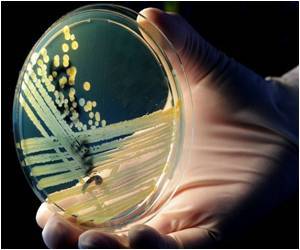For the bacteria in Richard Lenski's Michigan State University lab, there seems to be no fitness peak in sight

"When hiking, it's easy to start climbing toward what seems to be a peak, only to discover that the real peak is far off in the distance," Wiser said. "Now imagine you've been climbing for 25 years, and you're still nowhere near the peak."
Only the peaks aren't mountains. They are what biologists call fitness peaks – when a population finds just the right set of mutations, so it can't get any better. Any new mutation that comes along will send things downhill.
The bacteria in Lenski's lab are still becoming more fit even after a quarter century, living in the same, simple environment.
Biologists have known that organisms keep evolving if the environment keeps changing, but they've previously thought that adaptation would eventually grind to a halt if the environment stayed constant for a long time.
Wiser pulled hundreds of samples from the deep freezer that contains a frozen fossil record – bacteria all the way back to generation 0 in Lenski's 25-year experiment. And these fossils, unlike dinosaurs, are alive. So they can be competed against samples from different generations to measure the trajectory – the path – of the bacteria as they climbed for 50,000 generations toward the fitness peaks.
Advertisement
Wiser found that the trajectories matched a type of mathematical function called a power law. Although the slope of the power-law function gets less and less steep over time, it never reaches a peak.
Advertisement
"It was surprising to me that a simple theory can describe the entirety of a long evolutionary trajectory that includes initially fast and furious adaptation that later slowed to a crawl," Ribeck said. "It's encouraging that despite all the complications inherent to biological systems, they are governed by general principles that can be described quantitatively."
When will it end?
"I call this the experiment that keeps on giving," Lenski said. "Even after 25 years, it's still generating new and exciting discoveries. From the models, we can predict how things will evolve – how fit the bacteria will become – if future generations of scientists continue the experiment long after I'm gone."
Lenski hopes that an endowment could be secured to keep the experiment going forever, he added.
Source-Eurekalert














